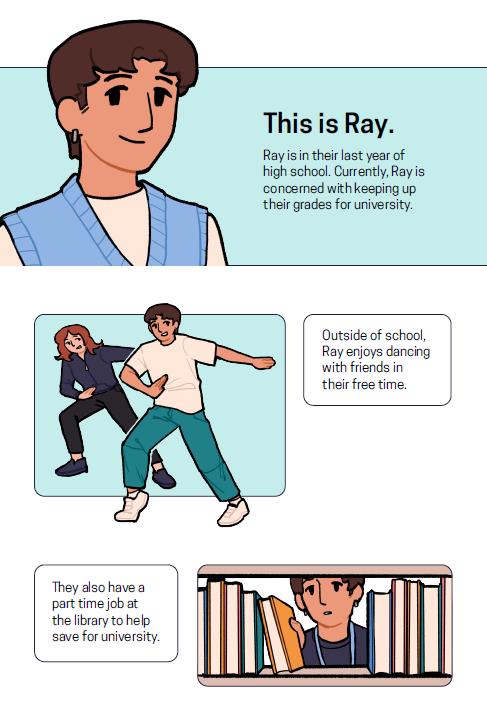Across Canada, a growing number of people under the age of 25 years provide significant and ongoing care to someone with a physical or mental health condition, disability, or substance use challenges. Often unrecognized, these caregivers are referred to as 'young carers'. Notably, not every young person in the circle of someone with an illness and/or disability is a young carer. Young people may transition into these caring roles for different reasons, such as lack of sufficient home care resources, family preferences, and values about caring.
The tasks of young carers are varied and complex – from emotional support and sibling childcare to medication administration and attending medical appointments. The strain experienced by caregivers due to burnout or demands of their role can also be experienced by young carers. However, young carers also encounter unique challenges, such as navigating major school, life, or work transitions, caring for a sibling, and social pressures. Without adequate support, young carers become at risk for physical and mental health challenges.
Understanding Health Care Providers' Awareness & Actioning Change for Health Care Systems
Dr. Karen Okrainec is a General Internist and Clinician-Scientist at University Health Network and University of Toronto who commonly hears about challenges caregivers face in caring for their family members inside and outside the hospital. From her clinical interactions, she conducted a research project and interviewed young carers about their experiences interacting with health care systems. Young carers who were interviewed identified challenges during these interactions, many of which can be traced back to a lack of understanding and recognition of their caring roles. Participants described the need to advocate for their loved ones and being tasked with making significant health care decisions. The lack of recognition of their role resulted in feeling dismissed in conversations with health care providers, leaving young carers to decipher health information and navigate the health system without support.
Isabelle Caven was one of the interview participants who shared their experiences as a young carer. Later, Dr. Okrainec partnered with Isabelle, who was hired as a research associate, to co-lead the RISE-Up (Recognizing, Identifying and Supporting the Engagement of Youth Providing Care) project along with other experts in the field. Young carers and community caregiving organizations from across Canada served as advisors throughout the entire project.
To gauge the extent to which health care providers currently understand and recognize these unique caring roles, the research team nationally surveyed health care providers and identified critical gaps between a provider's ability to recognize a young carer and support them in their clinical practice. For providers in Ontario, 78 per cent identified that they encountered young carers in their clinical practice, but only 60 per cent of providers shared that they were able to support these young carers, and even fewer were able to refer them to community resources.
Using modified experience-based co-design, the research team brought together young carers, health care providers and community caregiving organizations from across Canada to co-produce a toolkit meet the gaps identified through the survey. Health care providers can use the guiding questions in the toolkit to learn more about a young carer's journey and potential needs and use the resource section to connect young carers to community supports that may be able to address these needs. The toolkit can be accessed at this link.
The toolkit is intended to be an efficient and engaging resource for health care providers to support young carers in clinical interactions. However, it represents a small aspect of advocating for a health care system that recognizes the invaluable role of caregivers and is inclusive of their expertise. For many health care providers, they may not realize that the young person in the room with their patient is a carer.
Amanda Ramkishun, a young carer advisor on the RISE Up project, can attest to this first-hand: “I spend 5-10 hours at the hospital per day and am currently sitting here beside my dad's bed working on my laptop on a moving table, sitting on a chair and boy do I feel invisible."

To increase awareness of young carers in health care interactions, Amanda and other members of the advisory group of young carers co-produced a graphic narrative with Isabelle and designer Nichole Zhou. This narrative (see left) highlights a fictional young carer's journey, their unique needs when interacting with the health care system, and an example of how a health care provider can use the toolkit to address these needs.
Importantly, it also raises awareness about how current health system constraints manifest in the lives of young carers. The protagonist, Ray, is a young carer, and they and their family are part of the 6.5 million Canadians who do not have access to a family doctor. Without access to the front door of health care, the invisibility of young carers is further exacerbated and support needs for the carer and care recipient are potentially unmet.
Scroll through the graphic narrative, which highlights a fictional young carer's journey through the health care system. This narrative was created with the young carer advisors on the RISE Up project.